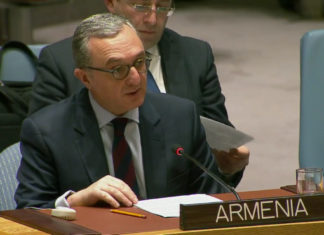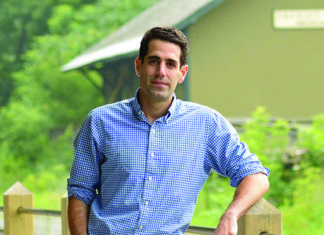 TORONTO & MONTRÉAL, Canada — The International Institute for Genocide and Human Rights Studies (A Division of the Zoryan Institute) and the McGill Centre for Human Rights and Legal Pluralism are pleased to announce their upcoming conference “From Truth to Reconciliation: Towards a Just Future for the Indigenous Peoples of Canada” to be held at the Faculty of Law at McGill University on March 8-9.
TORONTO & MONTRÉAL, Canada — The International Institute for Genocide and Human Rights Studies (A Division of the Zoryan Institute) and the McGill Centre for Human Rights and Legal Pluralism are pleased to announce their upcoming conference “From Truth to Reconciliation: Towards a Just Future for the Indigenous Peoples of Canada” to be held at the Faculty of Law at McGill University on March 8-9.
This conference will examine the urgent moral and legal challenges raised by the findings and recommendations of the Truth and Reconciliation Commission, and consider how Canada can come to terms with its colonial past and present in order to move towards a just future. The potential for reconciliation will be considered from the perspectives of three key relationships: with our shared historical truth; our relationship with the land; and the nation-to-nation relationship.
Keynote speeches will be delivered by Dr. Phil Fontaine, former National Chief of the Assembly of First Nations, and Douglas White, former Chief of the Snuneymuxw First Nation.
This conference brings together prominent Indigenous and non-Indigenous scholars and activists to promote innovative thinking and cross-cultural dialogue. In hosting this conference, the International Institute for Genocide and Human Rights Studies and the McGill Centre for Human Rights and Legal Pluralism seek both to educate the public in understanding the contemporary reality of Indigenous people in light of a legacy of “cultural genocide” and to consider how moving from denial to historical truth contributes to a culture of human rights and reconciliation.
The Zoryan Institute and its subsidiary, the International Institute for Genocide and Human Rights Studies, is the first non-profit, international center devoted to the research and documentation of contemporary issues with a focus on Genocide, Diaspora and Homeland.
The McGill Centre for Human Rights and Legal Pluralism, which celebrated its 10th anniversary in 2015, aims to deepen transdisciplinary collaboration on the complex social, ethical, political and philosophical dimensions of human rights. From its inception, it has concerned itself with the place of Indigenous law in the Canadian and international legal orders, as well as the recognition of the equal dignity of Indigenous people.








